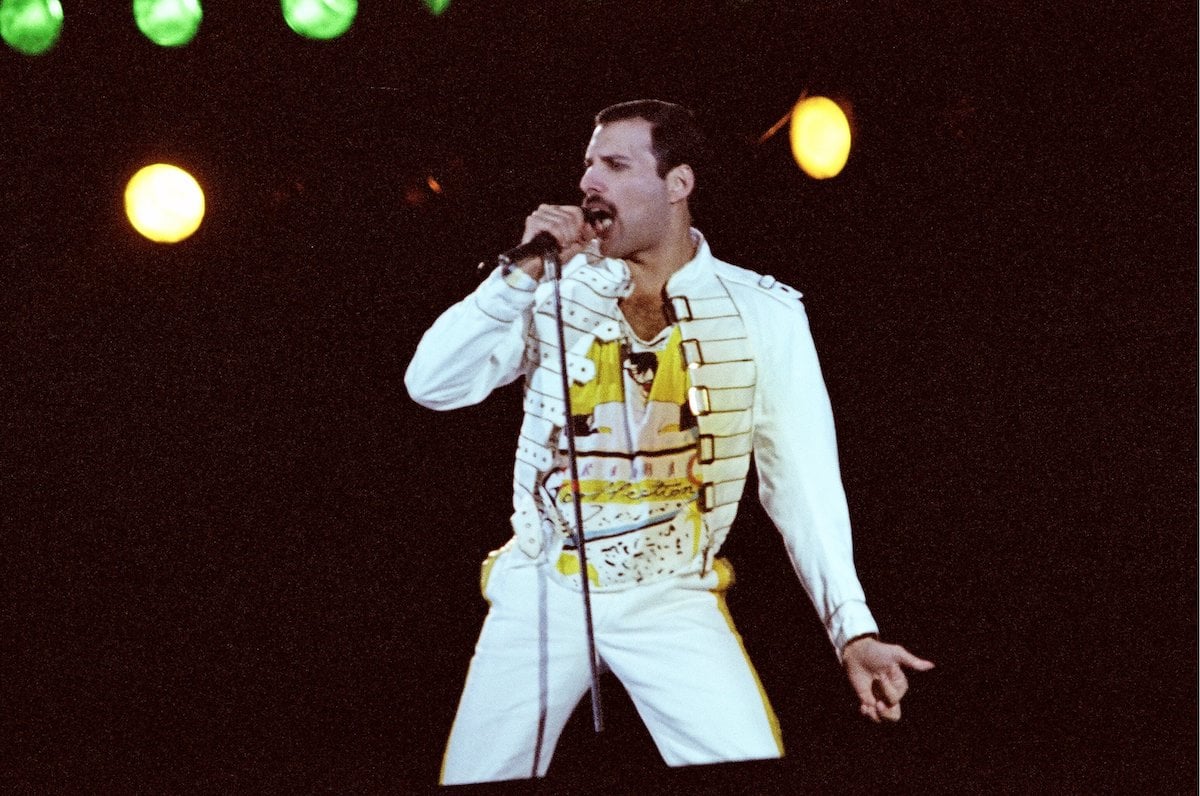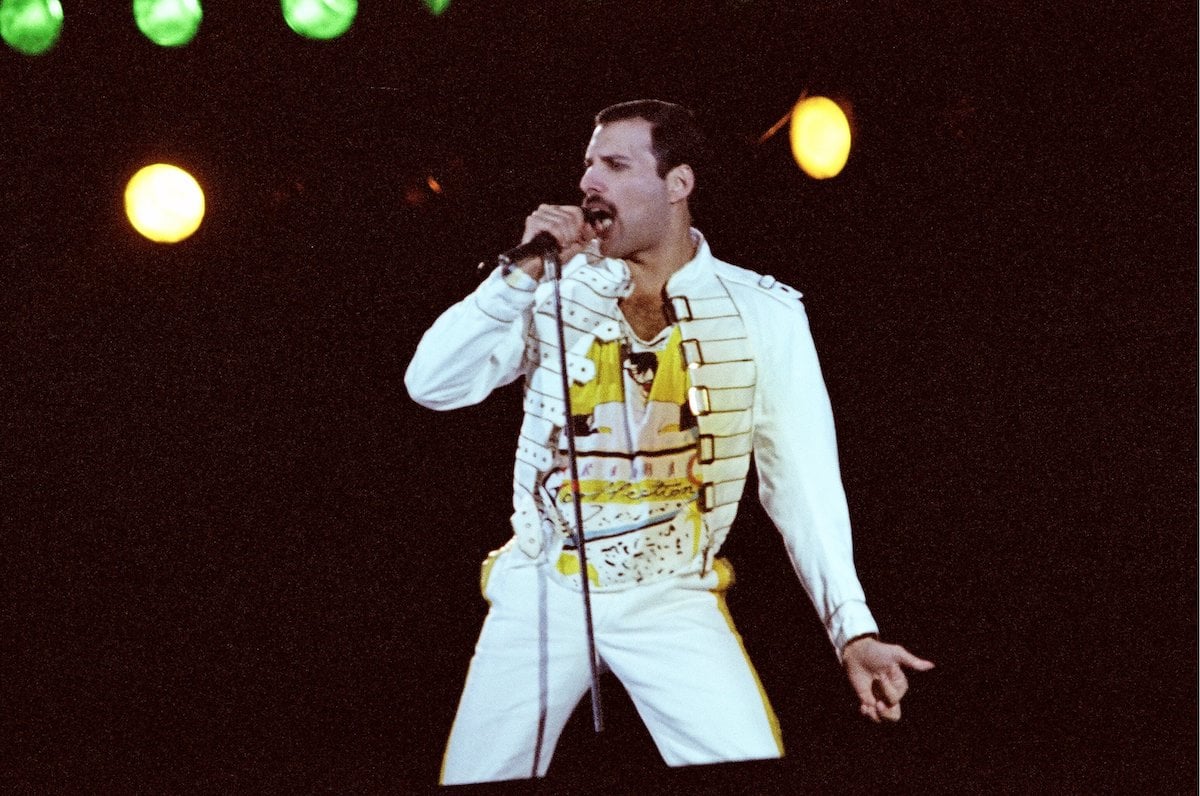
Freddie Mercury Recorded ‘The Show Must Go On’ in 1 Take With Help From Vodka Before His Impending Death
The annals of classic rock history abound with incredible performances and tales about Queen’s flamboyant frontman, Freddie Mercury. But none is as powerful as the story of the singer’s final recording. Though his life tragically ended too soon, the story behind his last song, “The Show Must Go On,” proves Mercury’s spirit — the spirit that captured the world’s attention and adoration — remained until the very end.
Freddie Mercury: Queen’s unforgettable, history-making frontman

It would be several decades before Farrokh Bulsara — born to Persian parents on Sept. 5, 1946, in Tanzania and raised in India — became the legend he remains today. After moving to England, Bulsara, who by then went by “Freddie” but had not yet adopted “Mercury,” attended college in London while filling his nights with music from the underground.
In 1970, Mercury joined Brian May and Roger Taylor in their band Smile when he replaced the lead singer. By the following year, Mercury, who had officially changed his name, altered the band’s name too, and Queen was born.
The group’s eponymous first album debuted in 1973. Their sophomore effort, Queen II, dropped in 1974, quickly followed by their third, Sheer Heart Attack, the same year. Included on Sheer Heart Attack was the Mercury-penned “Killer Queen” — the band’s first U.S. hit, which reached number 12 on the Billboard charts.
1975 brought the band’s dramatic A Night at the Opera, with its song “Bohemian Rhapsody” going to number one on the U.K. charts and climbing to number two in the States.
From then on, Queen released hit after hit, with 53 Top 40 singles on the U.K.’s Official Charts, with six of them reaching number one. The band’s 1981 Greatest Hits album is the U.K.’s best-selling record of all time, spending over 1,000 weeks — a staggering 19 years — on the charts. Other hits include “We Are the Champions,” “Another One Bites the Dust,” “Don’t Stop Me Now,” and “Under Pressure.”
By the time of his death on Nov. 24, 1991, Mercury was worth an estimated $30 million. That’s about $60 million today.
Queen’s ‘The Show Must Go On’ marked Freddie Mercury’s final farewell
One of Mercury’s last gifts to the world was Queen’s “The Show Must Go On.” Written by May in 1991, the song was the final track on Queen’s Innuendo. May feared his bandmate would be too ill to record the vocals, GQ reports.
But Mercury downed a shot of vodka and declared, “I’ll f***ing do it, Darling.”
It took him only one take.
Freddie Mercury’s battle with AIDS
Though he kept his diagnosis private, Freddie Mercury reportedly learned he was HIV-positive in 1987. May, who was close to Mercury from the time they formed Queen until the singer’s death, told Men’s Health in 2019: “Right up to the last minute, we knew, but we didn’t know. We sort of refused to know, if you like.”
In 1991, Mercury issued a public confirmation of his AIDS diagnosis. He died the following day at just 45 years old.
May’s wife Anita Dobson told the BBC she recalled Mercury saying to her: “Darling, when I can’t sing anymore, I’ll just die — I’ll drop dead.” And true to his word, Mercury recorded until the end.
Though he stopped performing live after Queen’s Magic Tour in August 1986, Mercury went on to record the songs for Innuendo. The last he recorded was “Mother Love” in May 1991, six months before his death. However, Mercury sang only two verses before becoming too weak. Brian May finished the song, debuting in 1995 on Queen’s Made in Heaven.
Following the album’s release, Taylor and May carried on, performing with various guest artists. However, Queen’s spirit is widely considered to have died with the irreplaceable Mercury.


